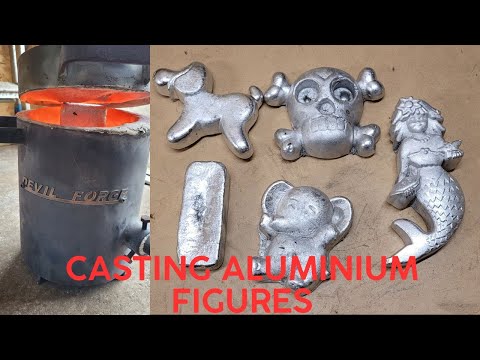Examine This Report on Stahl Specialty Company
Examine This Report on Stahl Specialty Company
Blog Article
The Definitive Guide to Stahl Specialty Company
Table of ContentsThe Buzz on Stahl Specialty CompanyStahl Specialty Company Fundamentals ExplainedNot known Incorrect Statements About Stahl Specialty Company Stahl Specialty Company Can Be Fun For Anyone7 Easy Facts About Stahl Specialty Company Described
Chemical Comparison of Cast Aluminum Alloys Silicon advertises castability by minimizing the alloy's melting temperature and enhancing fluidity throughout casting. Additionally, silicon adds to the alloy's stamina and put on resistance, making it valuable in applications where resilience is crucial, such as automobile components and engine elements.It also boosts the machinability of the alloy, making it simpler to refine right into finished products. In this method, iron adds to the overall workability of light weight aluminum alloys. Copper increases electrical conductivity, making it advantageous in electrical applications. It additionally enhances corrosion resistance and includes in the alloy's total strength.
Manganese contributes to the strength of aluminum alloys and boosts workability. Magnesium is a light-weight component that provides strength and impact resistance to aluminum alloys.
Zinc boosts the castability of aluminum alloys and aids control the solidification procedure during casting. It boosts the alloy's strength and solidity.
The Facts About Stahl Specialty Company Revealed
Because aluminum-silicon alloys have good spreading properties, high gas buildings, easy procedures, and superb deterioration resistance, aluminum-silicon alloys are most generally used in the die-casting industry in the house and abroad. At the very same time, aluminum-silicon alloys are additionally relatively early and extensively acknowledged alloys developed and made use of in die-casting. After continuous research study and enhancement, most of the present international mainstream aluminum-silicon alloys have been completed and are absolutely nothing more than A356, A360, A380, ADC12, B390, and A413.
The primary thermal conductivity, tensile toughness, return toughness, and elongation vary. Amongst the above alloys, A356 has the highest possible thermal conductivity, and A380 and ADC12 have the most affordable.

The Only Guide for Stahl Specialty Company
In accuracy spreading, 6063 is fit for applications where elaborate geometries and high-quality surface area coatings are extremely important. Instances include telecommunication units, where the alloy's remarkable formability permits sleek and cosmetically pleasing styles while preserving architectural integrity. In a similar way, in the Lighting Solutions industry, precision-cast 6063 components develop stylish and effective illumination components that need complex forms and good thermal performance.
(https://dzone.com/users/5301552/stahlspecialc.html)
The A360 shows exceptional prolongation, making it optimal for facility and thin-walled parts. In precision spreading applications, A360 is fit for industries such as Consumer Electronic Devices, Telecommunication, and Power Devices.

In precision spreading, aluminum 413 radiates in the Consumer Electronic Devices and Power Tools markets. This alloy's superior deterioration resistance click this site makes it an excellent choice for outdoor applications, guaranteeing resilient, durable items in the discussed industries.
Rumored Buzz on Stahl Specialty Company
Once you have chosen that the light weight aluminum die casting process appropriates for your project, a crucial next step is selecting one of the most proper alloy. The aluminum alloy you choose will considerably impact both the casting process and the residential or commercial properties of the end product. Due to this, you must make your decision carefully and take an educated technique.
Determining the most ideal light weight aluminum alloy for your application will certainly mean evaluating a broad array of qualities. These comparative alloy attributes follow the North American Pass Away Spreading Organization's guidelines, and we've separated them into 2 groups. Aluminum Casting. The initial group addresses alloy qualities that affect the production process. The second covers characteristics influencing the homes of the final item.
The alloy you choose for die spreading straight affects several elements of the casting procedure, like how very easy the alloy is to collaborate with and if it is susceptible to casting defects. Hot fracturing, also referred to as solidification cracking, is a common die spreading problem for aluminum alloys that can result in interior or surface-level tears or splits.
Stahl Specialty Company - Truths
Specific light weight aluminum alloys are extra prone to hot breaking than others, and your choice must consider this. One more common flaw discovered in the die spreading of light weight aluminum is die soldering, which is when the actors stays with the die wall surfaces and makes ejection hard. It can harm both the cast and the die, so you need to seek alloys with high anti-soldering buildings.
Deterioration resistance, which is currently a notable attribute of light weight aluminum, can differ significantly from alloy to alloy and is a necessary characteristic to think about depending on the ecological problems your product will certainly be subjected to. Wear resistance is an additional property generally sought in light weight aluminum items and can differentiate some alloys.
Report this page